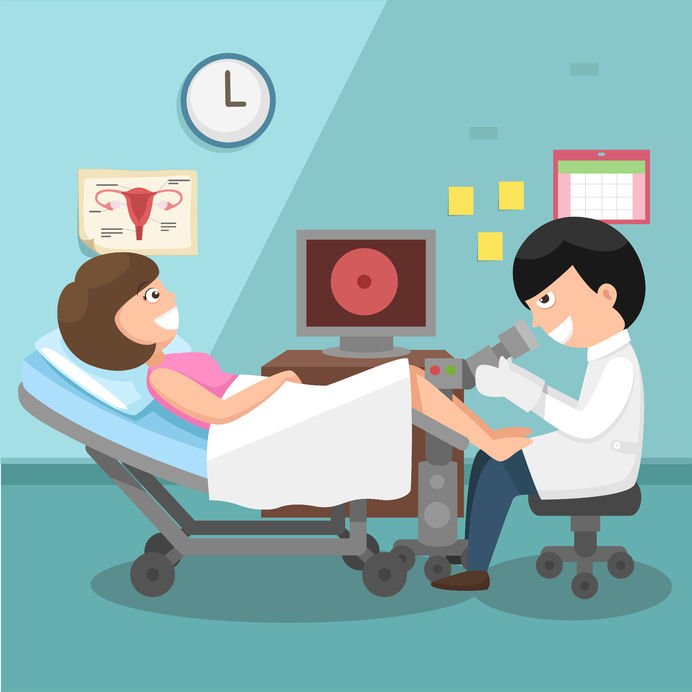COMMON QUESTIONS ABOUT PAP SMEARS
Do you have questions about pap smears?
Q: What’s the point of a pap smear?
It’s to prevent cancer of your cervix. A brush picks up a few cells to be looked at under a microscope. If they start to look abnormal, your doctor can take action. Click here to learn about what exactly a pap smear is.
Q: When do I start needing pap smears?
At age 21. It doesn’t matter when you start having periods, or start having sex. There are certain rare scenarios in which your doctor will test you sooner, such as if you have HIV/AIDS or other illnesses that affect your immune system.

Q: How often do I need a pap smear?
It depends on a few factors, and guidelines are constantly changing.
If you have never had an abnormal result, you get routine screening. This means every 3 years for women <30 years old.
For women 30 or older, it’s possible to stretch it to every 5 years, but would need to test for HPV at the same time, called “cotesting.” (Don’t worry, there’s no change in the procedure for you.)
When women reach age 65, or if they had the uterus and cervix removed with surgery (called a “hysterectomy“) for reasons other than cancer, they can typically stop getting pap smears. Again, there are rare exceptions, so talk to your doctor.
If you have had an abnormal result before, you will need another pap smear anywhere from 6 to 12 months later. It depends on your exact circumstances.
Either way, do NOT miss your appointments!! A pap smear can save your life. It’s one of the few cancers we know how to fight!
Q: If I had the HPV vaccine series, do I still need to get pap smears?
YES, ABSOLUTELY!! The HPV vaccine only protects against certain types of HPV, and even without the “help” of HPV, the cells of the cervix can progress into cancer. Learn more about HPV here.


Q: What if I have surgery and no longer have a cervix?
Some women have a “hysterectomy” – a surgery to remove the uterus, and typically the cervix is taken out as well since it does not really serve a purpose without a uterus. As long as you did not have uterine or cervical cancer, you will no longer need pap smears after that procedure. There are some rare exceptions.
Q: Why does my doctor ask such personal questions?
Your doctor only asks the questions (s)he needs to to assess your risk. Earlier ages of starting sex, HPV vaccine status, sexual habits such as use of condoms, and number of sexual partners you’ve had are all important information (s)he needs to know.
Q: What if the pap smear result is “inconclusive”?
Unfortunately, it means you’ll have to repeat it. It means the brush did not swab off enough cells to accurately identify how normal or abnormal they are.
Q: What if I’m on my period?
The pap smear doesn’t have to be done at a specific time during your menstrual cycle. If you’re not bleeding heavily, keep the appointment, since most doctors will still do it. If you want to be safe, you can reschedule it.
Q: Are pap smears related to STIs (sexually transmitted infections)?
They are quite separate, however the one STI the pap smear can test for is HPV. Click here for more information on HPV.
Q: Are pap smears related to birth control?
No, not at all! They are both important for your general health maintenance, so they should BOTH be discussed with your doctor even if you are perfectly healthy. Click here for more information on birth control.
Q: If I have an IUD (Intra-Uterine Device) for birth control, does it interfere with the pap smear?
No, you can still get pap smears done. In rare cases, the brush can pull on the IUD strings, but doctors try to be very careful.

Q: What if I’m pregnant?
A: Most doctors still do a pap smear if you are in your first trimester (first 3 months of the pregnancy). If you have abnormal results and need a further procedure, they typically wait until after you’ve had your baby.
Do you have any more questions about pap smears? Comment below or message me and I’ll add them on!




No responses yet